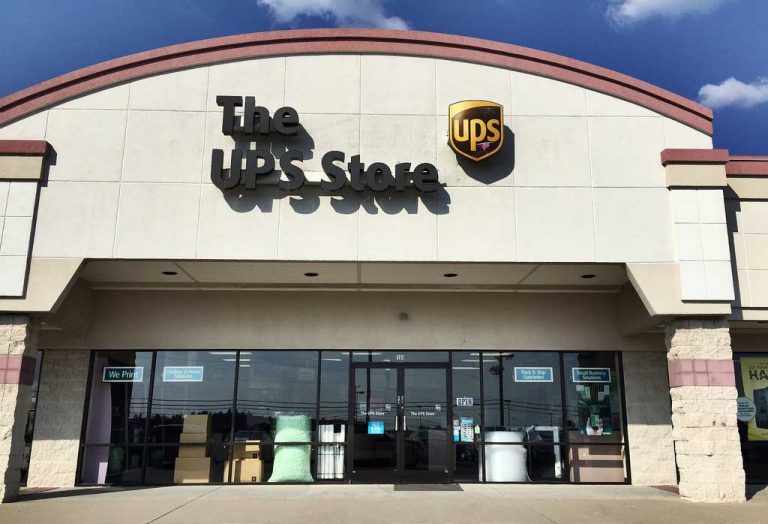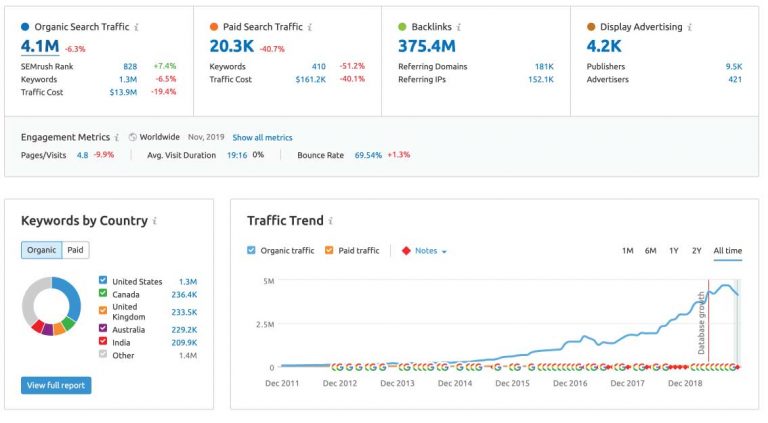Selling Your Ecommerce Business? Here Are Some Tips
I’ve made my career out of building and selling online businesses. After trying to start an automotive business (an endeavor that was going to cost us over a million dollars to get off the ground) with my father and brothers, then realizing how little risk was involved in selling things online, I jumped into the world of ecommerce and internet sales, and I’ve never looked back.
A History of Building and Selling Drop-Ship Ecommerce Businesses
My first online business was an outdoor sporting goods store called OuterSports.com, which I started with my younger brother. I “sold” that business, which was making about $3,500 in profit per month after we’d spent a year on it, to my brother for about $2,000 after he asked if he could take over the business himself. I don’t really count that one as a sale. Instead, the $2,000 price was essentially just a deal that allowed me to pay off an outstanding balance on a credit card I had.
After I split ways with my brother and OuterSports.com, I built (together with my new wife, who also became my new business partner) RobbinsSports.com. Over the course of 5 years, we built that store into an operation that netted over $1M in annual sales. The last year we owned it, we made about $240,000 in profit. Based upon a recommendation from a friend, I listed that business through a local business broker and sold it for $400,000.
After selling RobbinsSports.com, I started another online, drop-ship business selling products for physical therapy and other healthcare products: ProHealthcareProducts.com. Three years later, I sold that business to the son of one of my suppliers along with his business partner, who became interested in the store after learning from my supplier about the success I was having selling whirlpools and other hydrotherapy and rehabilitation products all over the country without needing an expensive storefront. The year I sold that business, I was making $10,000 per month in profit. I sold the business for $200,000.
In the midst of building my medical products business, I helped my wife build an online store selling children’s clothing. We called the store MayleesBoutique.com. As a part-time venture for my wife (more importantly, it was a chance to get clothing for our kids at wholesale prices), that business netted just over $30,000 in the year my wife operated it. We sold the business for $60,000.
What I Learned from Selling My Businesses
There were several reasons we chose to sell each of the businesses we operated. In the case of the medical products store, I got bored with the business and wanted to do something else. With the sporting goods store, we were both overwhelmed, sometimes pulling all-nighters doing embroidery or screen printing to meet deadlines and keep demanding customers happy. In the case of the children’s clothing business, we initially intended to make the business bigger, hire employees, and allow my wife to cut back how much time she was spending on it (a couple hours each day) so she could focus more on our kids, including a young baby. We ultimately decided
I’ve had friends and mentors tell me I’ve made mistakes in selling my businesses, that I would have been much better off keeping them and allowing them to mature while benefiting from the consistent profits they produced. I’ll admit that they’re probably right in some of their points, but I tend to like change and crave new experiences, so it’s not just about money for me.
In fact, anyone who’s reading this may be thinking, “Why did your sell your businesses more cheaply than you could have?” I could have (probably should have) sold my sporting goods business for over $600,000 instead of only $400,000, which means I left $200,000 on the table with the sale of that business.
I could have sold my medical products company for $300,000 instead of $200,000, so there went another $100,000 in equity.
And we could have sold the children’s clothing business for $80,000 instead of $60,000. Again, we essentially gave $20,000 in equity to the new owners.
Why did we do what we did, selling each of our businesses for less than their potential value? In the case of our sporting goods business, I simply made a bad choice with the business broker we used and the buyer they found for the business. In the other two cases, money wasn’t so much an issue as the satisfaction of handing off the business to someone who could use the business to benefit themselves and their families financially. If we had maxed out the sales price, neither of the new owners would have been really happy with the outcome, at least not as much as they were with the discounted sales prices we gave them.
My personality is such that I tend to feel serious empathy and compassion for someone (especially if I know they’ve had to sacrifice in any way to purchase the business) who buys a business from me. There is a certain amount of personal integrity capital and karma that I believe goes along with passing on a business to someone else. Even in a situation where the business might fail due to the faults of the new owner, it would be hard for me to accept that they weren’t able to make a go of it, and there would be some guilt on my part for the business not succeeding after I have turned over the keys. For that reason mostly, I’ve been content selling my businesses for significantly less than they’re worth.
Overall, I have learned from selling businesses that it’s good to take a hard look at why you’re selling a business and understand the value that the business has for you and your family. Then sell it for that amount if the market and your conscience will bear it. Otherwise, keep the business and continue to benefit from
Another thing that I’ve learned is that there are lots of different reasons why people buy an online business. You may need to be selective about who you’ll sell your business to, especially if it’s going to affect the price you get out of the business, or if you are still connected after the sale to the business through financing or other contingencies, two of which I’ll explain below from my own experience.
For instance, we were reluctant about selling our children’s clothing store to a neighbor, because it was important for us to keep a good relationship with them, and we didn’t want to seem like we were trying to take advantage of them. As my wife was going through the due diligence process, I told her to spend her time “unselling” the business to the folks who seemed set on buying. If they still wanted the business, they could buy it from us.
How to Calculate the Value of Your Internet Business
The value of your ecommerce business will vary somewhat depending upon who’s interested in buying it. However, for drop-shipping retailer businesses like the ones I built, the multiplier is typically 2 to 2.5 times the amount you received in profits the previous year.
If you’re selling to an individual who’s simply interested in using your business as a way to quit his day job or to jump into the world of ecommerce, you’ll likely be closer to the 2x multiplier. Buyers in this situation often need some extra hand-holding, and they have the make the numbers work for them immediately. For instance, if your business is bringing in $100,000 per year in profit, and you sell your business to someone new to the internet marketing industry who is planning to use the income from your business to pay his bills, who finances most of the business purchase (business loans usually have interest rates around 8%), and who doesn’t have a ton of cash to put down on it, you are much less likely to get more than two times your $100,000 annual pace, which means you’d net $200,000.
If you find a buyer for your business who is a more experienced marketer or a company looking to expand into a new field or to have access to a wider customer base, you can usually sell your business for much more, possibly 2.5 to 3 times your previous year’s net income.
Keep in mind, these multiplier numbers are for ecommerce retailing types of businesses that have to essentially find new customers (or at least help the internet to find the customers for them) each month to sell their products to, meaning that there is no subscription model in place. If your ecommerce business consists of subscriptions (such as info product memberships or monthly payments for access to software or apps), the multiplier can go up much higher. I’ve seen as high as a 6x for these types of businesses, which (software as a service or SaaS companies) are especially popular where I live in Utah. Subscription model businesses have higher sales multipliers because of the higher certainty of continued sales volume and higher margins, which also allow them to often grow more quickly than product retailers.
Recasting
When you’re preparing to sell your online business, part of the process involves recasting your expenses. For instance, if you bought a new truck as part of your business operation, and you also use it for personal use, you likely wrote off some portion of that truck against the business, counting it as an expense. However, you would have needed some kind of transportation either way, and the new owner of the business could get buy without the type of truck you bought. The expense
This process of removing from your business’ bottom line the expenses from the previous year that were not specifically necessary for the operation of the business is called recasting. This makes your business more valuable. Each dollar you are able to honestly recast usually becomes worth two to three dollars of sales value.
Selling Through a Business Broker
When my wife and I sold our first business (our sporting goods business, RobbinsSports.com), we used a local business brokerage. For the same reasons that I often don’t recommend using a real estate agent unless you absolutely feel you need the professional assistance, I don’t recommend using a business broker.
There are three main reasons I don’t suggest a business broker:
- They charge a high commission, usually 10%-12%, which eats away at your business equity.
- Most of what they do, you could also do, sometimes even better than them.
- Because of human nature, their fiduciary duty to helping you achieve the most optimal outcome is almost always second to their commitment to getting a commission off the sale of your business as quickly and easily as possible.
In our case, we listed our business with a company called Alpine Business Brokers. If you want to read all the details of my experience, you can find them on my review of their Google business listing. I’ll summarize what happened here.
I signed a representation agreement with Alpine that gave them a 12% commission for finding a qualified buyer and representing me through the process of selling my business to that buyer. We listed the business for sale at $600,000.
I intended to finance as much as necessary of the purchase price. Because of that financial commitment I was making to the ongoing success of the business and because the business bore my last name, I wanted to be certain that the business wasn’t sold to just anybody, and that the new owner would take good care of it so that he could pay back my financing and so that the business would continue to be successful, fulfilling our vision of being a valuable resource for coaches, athletes, parents, and others involved in sports.
As we went through due diligence and got closer to the date set for closing, I was uneasy about the purchaser my broker had presented to me as someone who met my qualifications. He was an older person (in his 60’s) who had the net worth and cash available to purchase the business, but who was obviously lacking in other areas, including having an understanding of technology related to the internet (naturally one of my primary requirements), a sales and customer support mentality, and the overall assertiveness I felt was required to be successful with my business.
As we went further through the process of showing him how my business works, I became less impressed with this purchaser. He kept asking how he could run the business while he was out of town, and I got the feeling that he was approaching the business like he was purchasing a golden goose that just kept producing money without requiring any effort. I emphasized that to him, but he never seemed to get it.
Don’t Use an earn-out Contingency When You Sell
One thing that made me more critical in my assessment of this potential new owner was that the economy was struggling (this was 2009), and this potential new owner wanted to hedge against a slower market. The compromise presented by my broker (who was supposed to be my advocate) was to set the official purchase price $200,000 lower than what I had listed, and then make that $200,000 available to me through what’s called an earn-out clause, which I learned was a commonly used business sale arrangement in which the ultimate price paid by the buyer is contingent upon the business’ earnings for a period of time after ownership has been transferred. In order to receive the $200,000 earn-out, the business would need to have revenues that matched what we’d had the previous year, about $1.4M.
My humble advice from that experience is this: NEVER USE AN earn-out ARRANGEMENT! At least not one that was structured like mine, where there is a short-term performance period that determines the ultimate amount owed to the seller. It only benefits the buyer, who may be unmotivated, especially if he understands that his efforts during the performance period of the earn-out clause have diminishing returns. The harder he works, the more money he has to split with you.
In my case, it cost me $200,000 in value that existed in my business when it was sold, but which quickly evaporated as soon as this unmotivated, unskilled, and unethical new owner took over. It was obvious that he understood that the first year after he owned the business was a chance for him to neglect it and simply relieve himself from the earn-out obligation by not answering sales calls, not responding to quote requests, and not operating the business like someone who wanted it to be successful.
Leading up to the sale, I was very hesitant about the arrangement. In the last few weeks before the transaction was to take place, I went on a vacation with my family to Texas. I had let the broker know I would be out of town and not as available as I was normally. For a couple of days, I didn’t respond to their calls and emails, mostly because I was second-guessing the decision they were trying to get me to make: selling my business to someone who seemed unqualified, potentially unmotivated to run it, and setting up a $200,000 contingency that depended upon his work ethic.
While I was on vacation, my mom and dad (who were handling my business calls while I was out of town) both called and left panicky messages about needing to be in contact with my agent immediately. When I returned their call, my mom told me that the agent had called and threatened that I would be held liable for the $54,000 (12%) commission to his brokerage if I didn’t go through with the sale of my business.
The reason I share all of these details boils down to this: chances are, if you use a business brokerage, they will NOT be looking after your interests as you’d expect a fiduciary to. They will most likely be motivated almost entirely to find the quickest, most convenient sale that will give them a commission.
Human nature makes it that way.
Very few people, including among business brokers, real estate agents, and similar relationships, have developed the integrity to be any different.
Financing the Sale of the Business
A habit I started when I sold my sporting goods store was that of financing the sale. Doing so makes it more attractive to the seller, who is more confident in the store’s future success based on the seller taking on some of the financial risk through financing.
In the case of RobbinsSports.com, I financed $150,000 at a rate that was less than the going rate for business loans (6% instead of 8-10%). That arrangement was good for me, considering that it was an investment in a business that I knew well, and that didn’t need any underwriting to determine its legitimacy like a bank or other business loan would require. Also, because of how well I understand internet marketing and ecommerce, I knew that if the new owner tanked the business to the point of not being able to make payments on the loan, I could jump in and repossess it, then quickly restore it to full profitability.
If you are thinking about selling your ecommerce store, I strongly suggest that you consider offering some portion of the purchase price.
Selling Through an Online Business Listing Website
When we were ready to sell MayleesBoutique.com, we understandably decided to go a different route than using a broker. We knew about popular business buy/sell websites like Flippa (which charges $200 + 10% of the completed sales, which is called a “success fee”) and BizBuySale.com (which is much cheaper, with no success fee).
Some of these online business listing websites provide full service (vetting the business financials and other aspects of the business, handling legal aspects of the business) similar to a brokerage. Flippa is one of those. That’s why they charge so much of a success fee commission.
Others, including bizbuysale.com and websiteproperties.com are not much more than nationwide businesses for sale classifieds where sellers can list their businesses, and buyers can shop for ones they find intriguing.
My wife and I decided to list our clothing store on WebsiteProperties.com. Within a few weeks, we had several interested buyers, some of whom seemed very willing to pay the $80,000 asking price based upon our $35,000 in net profit (a 2.3x multiplier) from the previous 12 months. We could have easily sold our children’s clothing business to one of these interested purchasers, handing over the business to them with a minimal amount of training and letting them take the business and grow it as they desired.
However, I had mentioned to a friend of mine that we were selling our clothing business. She looked up the business listing on WebsiteProperties.com and decided that she was set on buying it. Because of our desire to keep our relationship with the new buyer and her family healthy, we decided to sell the business for $20,000 less than it was worth, and to provide an extra 80-100 hours of support to hand off the business.
Selling Via Word of Mouth or Your Own Marketing Efforts
The most recent business I’ve sold was ProHealthcareProducts.com. I actually wasn’t in the market to sell it, but I was approached by a group of people who I thought were decent guys, and I was a bit fatigued with operating the business, especially since I ran it by myself and didn’t have much interaction with people outside of taking customer phone calls and doing sales and customer support. I was ready for a change, and these guys were ready to try their hands at an ecommerce.
I sold ProHealthcareProducts.com for $200,000, accepting a down payment of $50,000 and financing the rest. I’ve stayed in touch regularly with one of the new owners of the business, the one who operates it on a daily basis, and I’ve provided ongoing free consulting. Although I could have extracted more money out of the business had I gone about selling it (or keeping it) using a different approach, I’ve been happy with the outcome.
In my situation, I attracted a buyer for my online medical products store without even intending to sell it. I’ve seen some online business owners who find qualified (both financially and with their skill sets) buyers simply by advertising through the ecommerce site itself. For example, a highly recognized name in the ecommerce industry, Andrew Youdarian, once sold his TrollingMotors.net company by posting about it being available for sale on his EcommerceFuel.com blog.
If you have built a business using your internet marketing skills to attract customers, you certainly have what it takes to use those same skills to attract a buyer for your business. In fact, you’re almost certain to be better at finding the right buyer than a broker who knows very little about your business and what personality traits and skills he should have to be able to successfully operate your business, which are often the same set of capabilities that allows that person to understand the full value of your business.
Selling an Ecommerce Business Without a Broker
If you decide to sell your online business using one of the methods outside of going through a broker, there are lots of alternatives for getting the help you need to cover all your legal, accounting and tax, and other bases so that the transaction goes smoothly and so that risk is mitigated. For the average Joe, that might seem like a daunting process, but for someone who is smart enough to figure out how to make the internet bring you enough income that the business is viable enough to sell, you’re certainly smart enough to determine what you need and find it. Barring making some kind of disastrous decision by ignoring important issues that should be addressed, going that route will be much less expensive than giving up 10-12% of your business value to a broker who may simply be looking to get to closing, regardless of how well you fared in the exchange.






